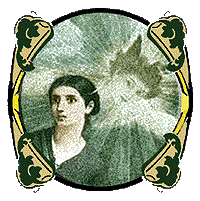
HOME
~ BOOKS
~ FEATURES ~ KEEP
IN TOUCH
Instructions of the Spirit
poems & intimations
Fearless founder D. Patrick Miller's first collection of poetry presents 36 poems and “intimations” celebrating the challenges and mysteries of spiritual experience.
“It is not easy to translate the experiences of the spiritual path into everyday language, but D. Patrick Miller brings his lengthy apprenticeship as a poet and journalist to the task. Alternately tender and rigorous, Miller’s poems record the colors and textures of his journey with skill, subtlety, and compassion.”—J. RUTH GENDLER, The Book of Qualities
“This book is one startling collection of colored laser beams, searing to the core of our universal griefs and longings, iconoclastic and incandescent. Miller traces each memory, perception, and sensation to its hard, irreducible spiritual root.”— MARC POLONSKY, The Poetry Reader’s Toolkit
“This intriguing collection of poems is also a record of the writer’s long and winding spiritual journey over the last thirty years. The book is a kind of encapsulated meditation on illness, healing, forgiveness, and the earth, but the poet always returns to love as the root of all Being.” — ALISON LUTERMAN, The Largest Possible Life
INSTRUCTIONS
OF THE SPIRIT
poems
& intimations by D. Patrick Miller • signed
Fearless Books, June 2004 • ISBN 0-9656809-6-7
60 pages, paperback
$9.95 (SHIPPING INCLUDED!)
CLICK HERE FOR E-BOOK
IN MULTIPLE FORMATS
from the Introduction...
When I recently titled a poem “Instructions of the Spirit,” I suddenly recognized the role that poetry has played in my life as a writer. For me a poem arises from a mystical instinct, as if Somebody Up There (or In There?) is trying to tell me something, and it’s my job to figure out what it is and get it down on the page. But spirit is formless and so its communications consist of hunches, ah-ha’s, oomphs, and bumps in the night. It’s not that spirit speaks in code, because it doesn’t have a language. In fact I’m the one who’s writing in a kind of code: a translation of the ineffable. Whether I write good code or useless code is really up to the reader to determine. All I can do is pay attention to the input and carefully craft the output...
These poems are followed by remarks and reflections that I refer to as “intimations.” These brief asides are not attempts to explain the poems, because anyone who’s ever sat through Poetry Appreciation 101 knows that explanation can kill a poem right off. But I do try to provide a few intimate glimpses into where poems have come from or where they might be going, much as I would do at a public reading. Since I can’t give readings everywhere this book goes, the “intimations” are my stand-ins for a personal appearance. I hope that these asides also encourage the reader to take another look at each poem, because any good poem usually requires a second reading to really get acquainted with it. The baby who at first seems to be speaking gibberish may actually be giving voice to a revealing code...
Lullaby
I am not a body. I am the rain,
falling all over your house and
in the deep fold of the distant hills.
I cover the leaf, the roof, the field grasses
and the shiny street. A billowing wind
carries me through the swirling branches
and drives me against your window.
I strike and coalesce, fall and spill
into the soil and the swallowing gutter,
taking a wild ride to the sea.
Later the sun will draw me up,
but the clouds will lose me when
they let down their burden in water
again. I am not a body. You can
sleep to the sound of my falling.
Part of the process of spiritual surrender is learning to release our own consciousness into the watery medium of the spirit. Instead of anxiously planning what should happen to us next, we learn to “go with the flow.” Instead of trying to make ourselves different, better, or higher than the rest of creation, we learn to be content with the sensations of dispersal, falling, soaking through, and cycling between different states of being. Science tells us that our bodies are mostly water; spirituality teaches us how to live that truth.
